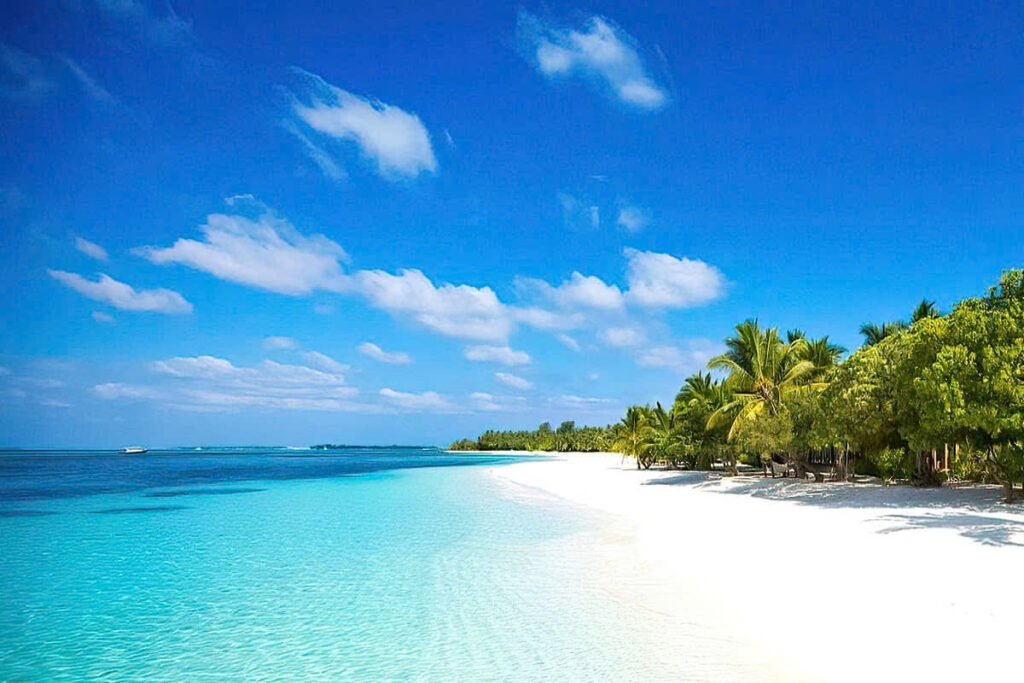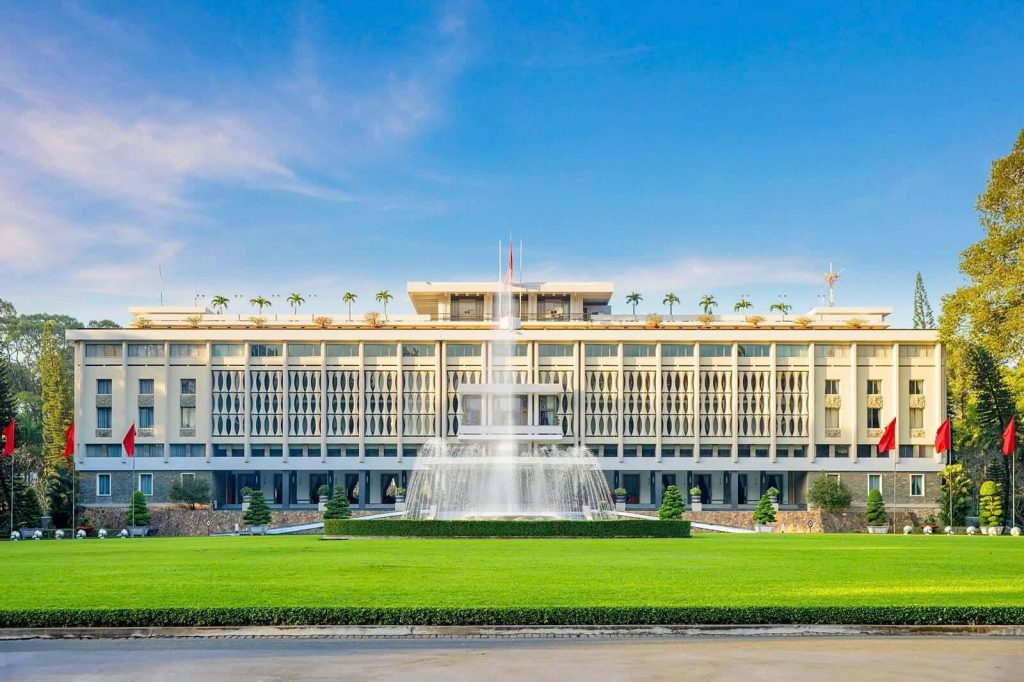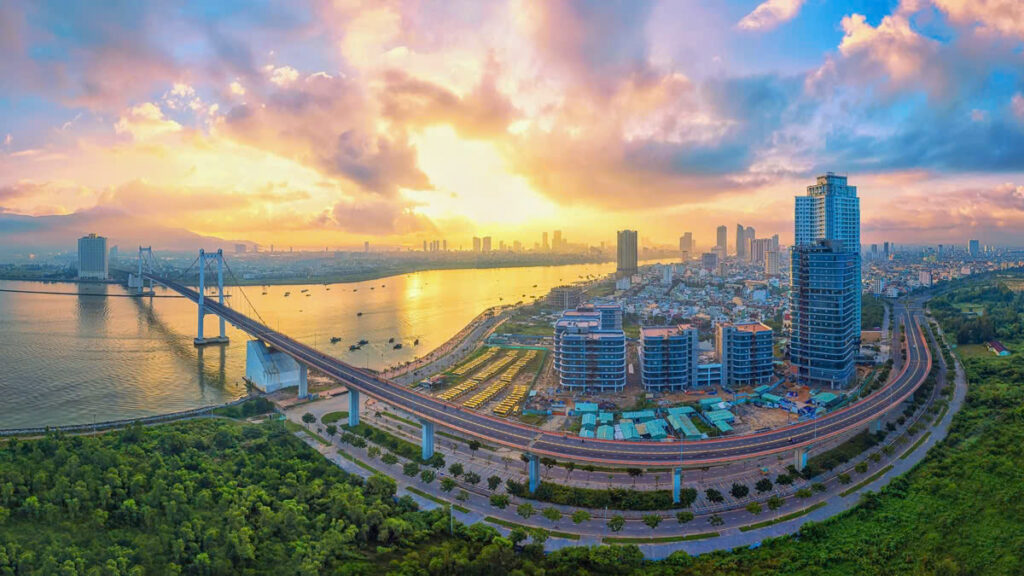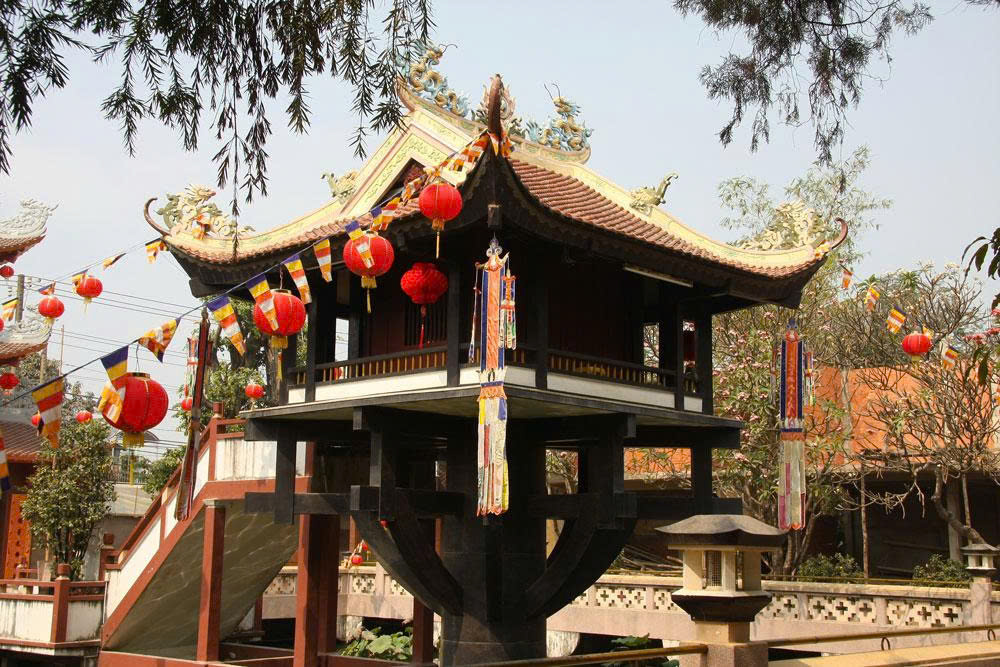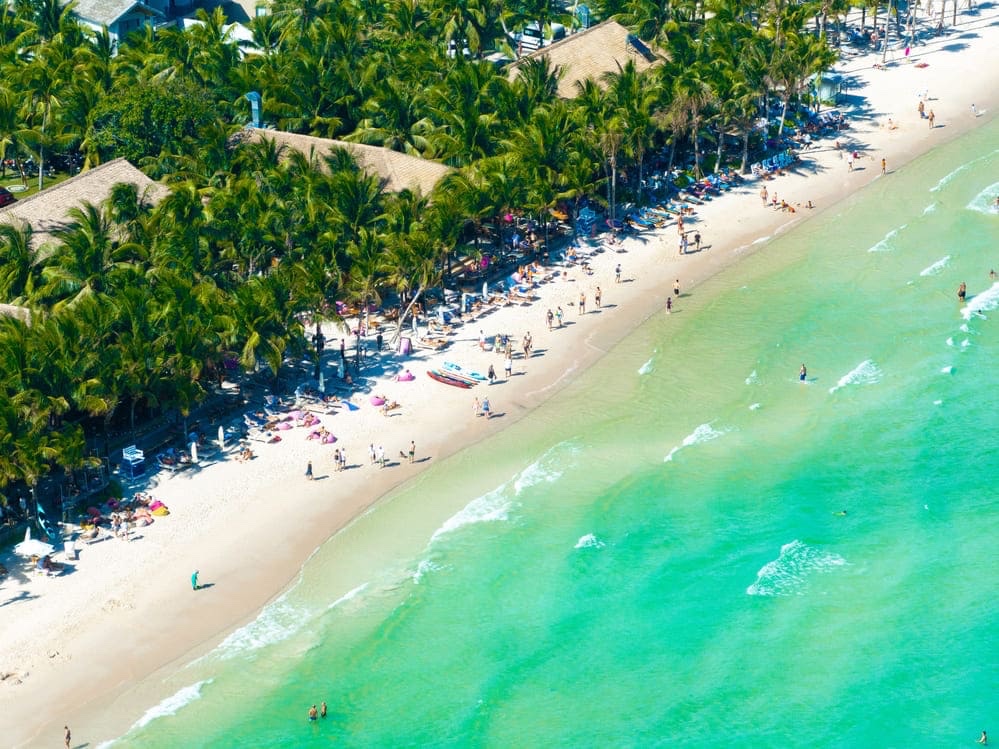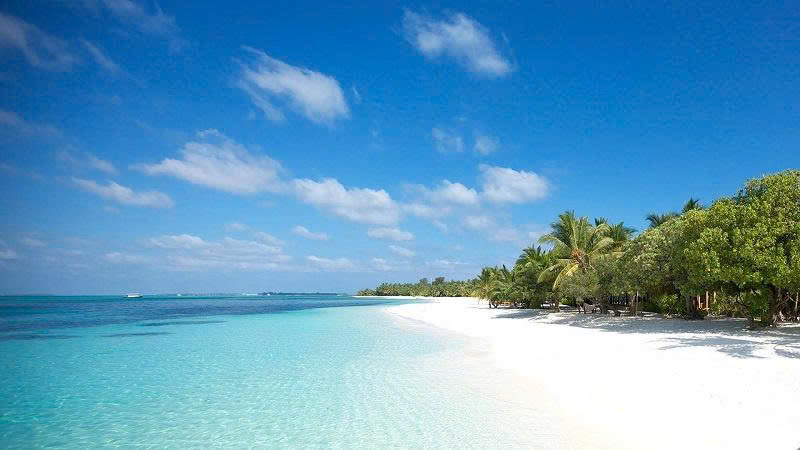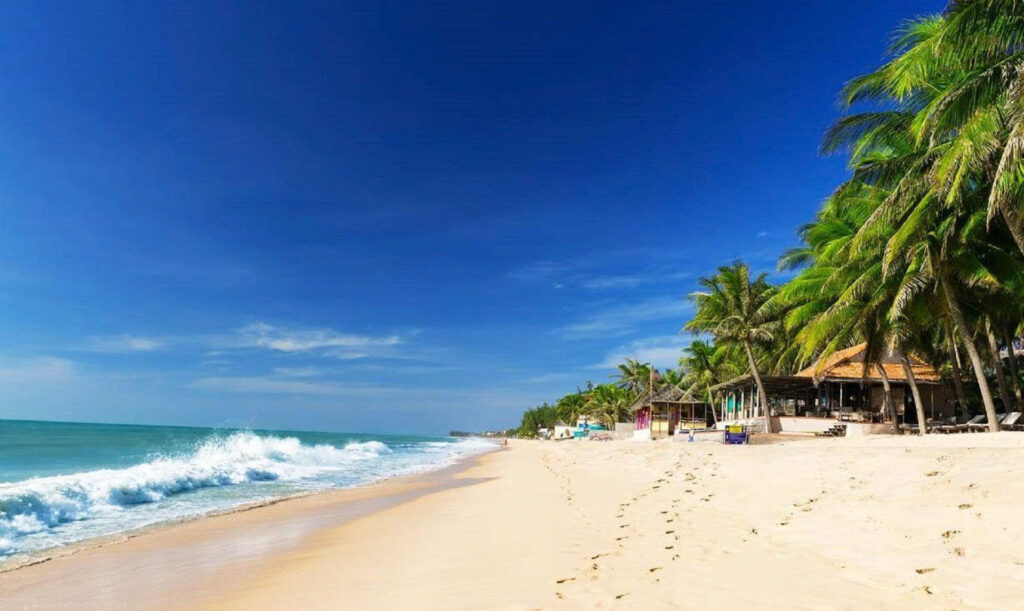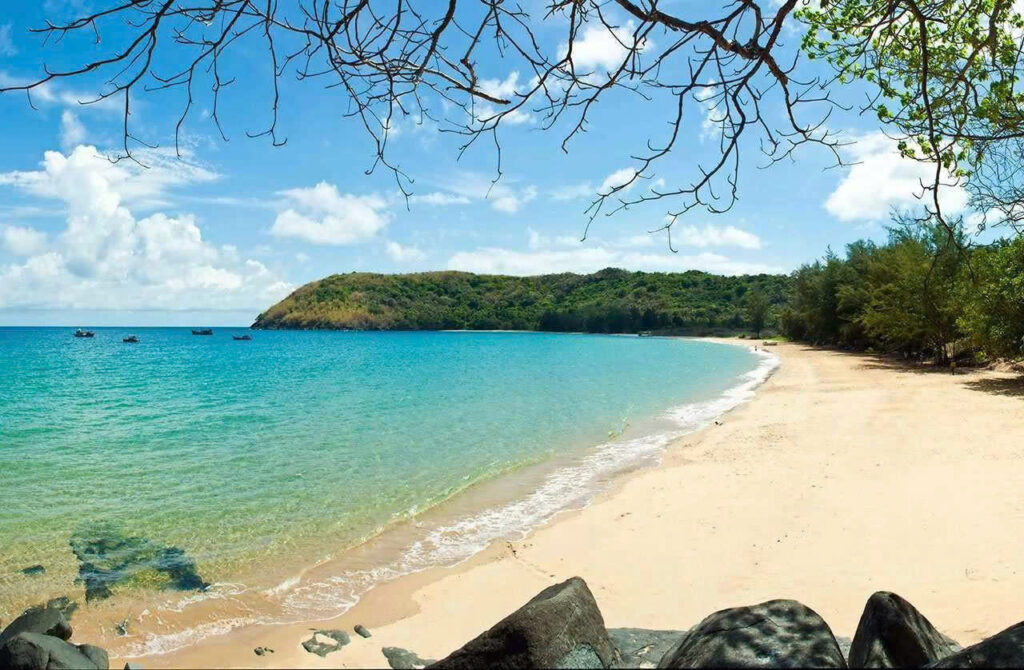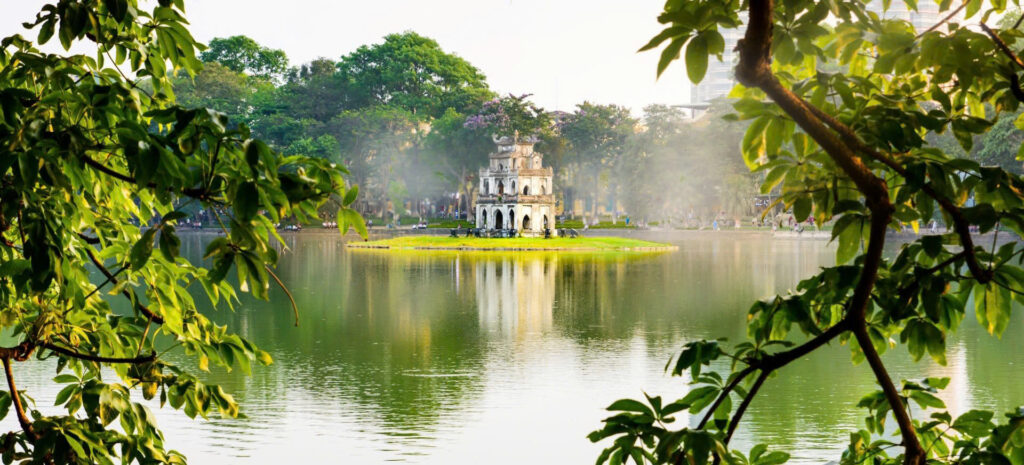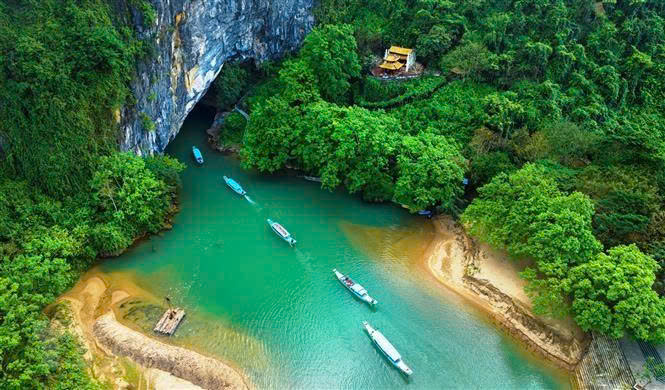Vietnam has steadily emerged as a captivating destination for retirees seeking an affordable, culturally rich, and vibrant place to spend their golden years. With its stunning landscapes, delicious cuisine, warm hospitality, and a significantly lower cost of living compared to Western countries, it’s no wonder more and more international retirees are considering this Southeast Asian gem.
But with so many diverse regions, how do you pinpoint the top retirement city in Vietnam that’s perfect for you? This comprehensive guide will walk you through the essential factors to consider and highlight the leading contenders, ensuring you make an informed decision for your ideal retirement.
Why Choose Vietnam for Your Retirement?

Before diving into specific cities, let’s understand the compelling reasons why Vietnam is becoming a retirement hotspot:
- Affordable Cost of Living: Your retirement savings can stretch significantly further here, allowing for a higher quality of life.
- Rich Culture & History: Immerse yourself in ancient traditions, vibrant festivals, and a fascinating past.
- Delicious & Healthy Cuisine: Enjoy fresh, flavorful, and incredibly diverse Vietnamese dishes.
- Warm & Welcoming People: Vietnamese people are renowned for their friendliness and hospitality.
- Diverse Landscapes: From pristine beaches and lush mountains to bustling metropolises and serene deltas, Vietnam offers a backdrop for every preference.
- Growing Expat Communities: Easier to find like-minded individuals and support networks.
Key Factors When Choosing Your Retirement City
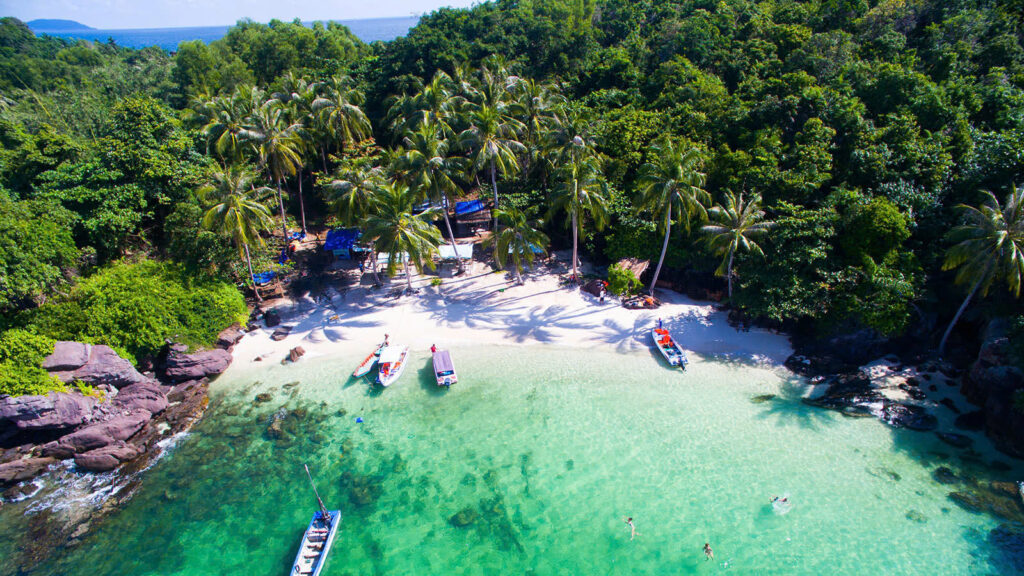
The ideal city for you is a very individual matter. Reflect on these vital elements to refine your options:
- Cost of Living: This is often the primary driver. Research average expenses for rent, food, utilities, transportation, and entertainment in each city. Your pension will go a long way in Vietnam.
- Healthcare Quality & Access: Look into the availability of international hospitals, reputable clinics, and the standard of medical care, especially for seniors or those with specific health needs. Consider health insurance options that cover you in Vietnam.
- Climate: Vietnam has diverse climates. Do you prefer tropical warmth year-round, or do you appreciate cooler temperatures?
- Safety & Security: While generally safe, research crime rates and local safety considerations for each area. Vietnam is largely considered a safe country for expatriates.
- Infrastructure & Amenities: Assess the quality of roads, public transport, internet, banking services, and access to shopping centers, supermarkets, and local markets.
- Expat Community & Social Scene: Do you want a large, active expat community for social support and activities, or do you prefer a more local, quiet experience?
- Activities & Lifestyle: What are your interests? Beaches, golf, hiking, cultural events, fine dining, volunteering? Ensure the city offers opportunities that align with your preferred lifestyle.
- Visa & Legal Requirements: Understanding the process for long-term residency and visa extensions is paramount for foreign retirees. While a specific retirement visa doesn’t exist yet, there are pathways for extended stays.
- Air Quality & Environment: Consider pollution levels, especially in larger cities, and proximity to green spaces.
The Top Contenders: Best Retirement Cities in Vietnam
Based on the criteria above, these cities consistently rank high for international retirees:
1. Da Nang: The Dynamic Coastal Hub
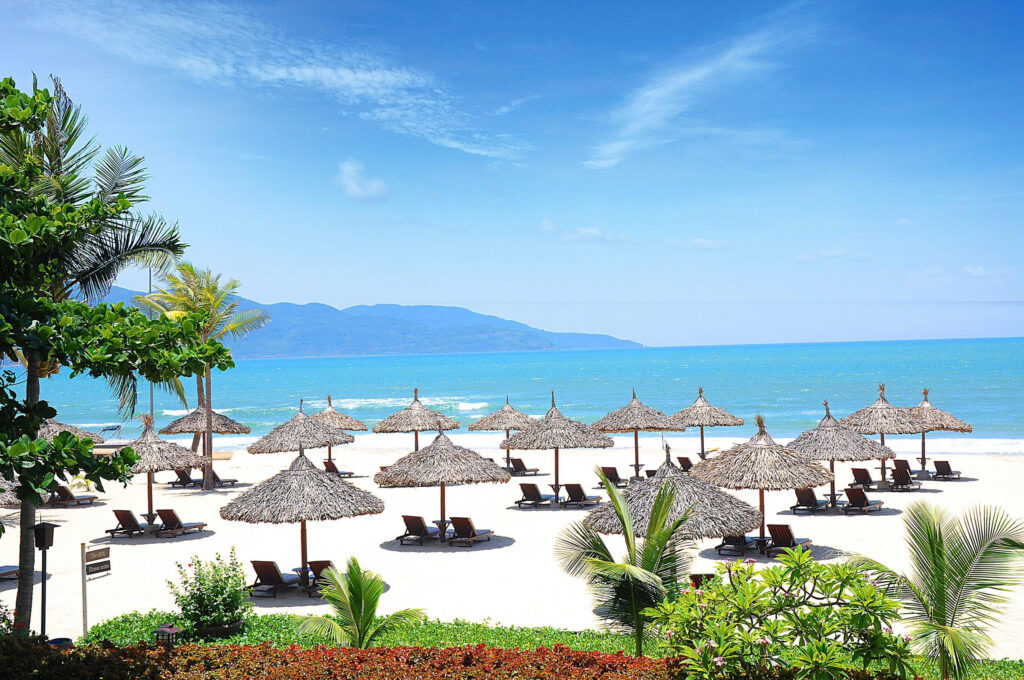
Da Nang, nestled on the central coast, strikes an excellent balance between modern amenities and natural beauty. It’s frequently cited as a top choice for retirees.
- Pros:
- Stunning Beaches: My Khe Beach, one of the world’s most beautiful, offers a relaxed coastal lifestyle.
- Modern Infrastructure: A well-planned city with good roads, an international airport, and growing facilities.
- Healthcare: Several good hospitals and clinics, including international-standard options.
- Affordability: More affordable than Hanoi or Ho Chi Minh City, with a comfortable lifestyle.
- Cleanliness & Safety: Known for being one of Vietnam’s cleanest and safest cities.
- Proximity to UNESCO Sites: Easy access to Hoi An Ancient Town and My Son Sanctuary.
- Growing Expat Community: A welcoming environment for foreigners.
- Cons:
- Can get very hot in summer months.
- Developing public transport system.
- Cost of Living Snapshot (Monthly Estimate for a Couple):
- Rent (1-2 bed apartment): $400 – $800
- Food: $300 – $600
- Utilities: $100 – $150
- Total Comfortable Living: $1,200 – $2,000+
RELATED: 20 Unforgettable Things to Do in Da Nang: Your Ultimate Travel Guide
2. Hoi An: The Charming Ancient Town
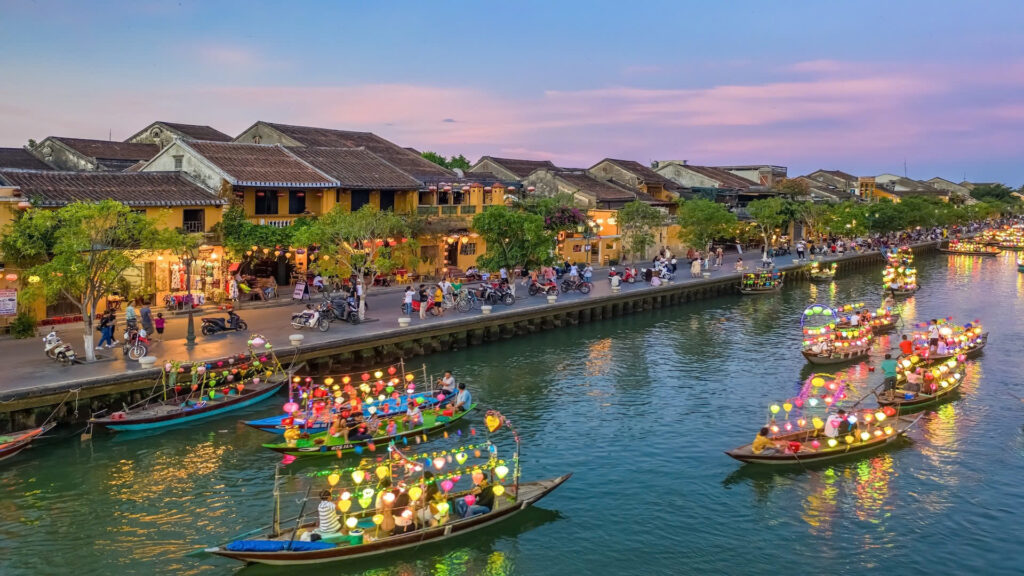
Just a short drive from Da Nang, Hoi An offers a slower, more quaint pace of life with undeniable charm.
- Pros:
- UNESCO World Heritage Site: Beautifully preserved ancient town, rich in history and atmosphere.
- Peaceful & Scenic: Ideal for those seeking tranquility and aesthetic beauty.
- Walkable: Compact and easy to navigate on foot or bicycle.
- Community Feel: A strong sense of community, with many artisans and cultural activities.
- Proximity to Beaches: Close to An Bang and Cua Dai beaches.
- Cons:
- Can be very touristy, especially during peak season.
- Fewer high-end healthcare facilities compared to Da Nang (rely on Da Nang for complex medical needs).
- May feel too quiet for some.
- Cost of Living Snapshot (Monthly Estimate for a Couple):
- Rent (1-2 bed house/apartment): $350 – $700
- Food: $250 – $500
- Utilities: $80 – $120
- Total Comfortable Living: $1,000 – $1,800+
RELATED: Best Things to See and Do in Hoi An Vietnam
3. Nha Trang: The Vibrant Beach City
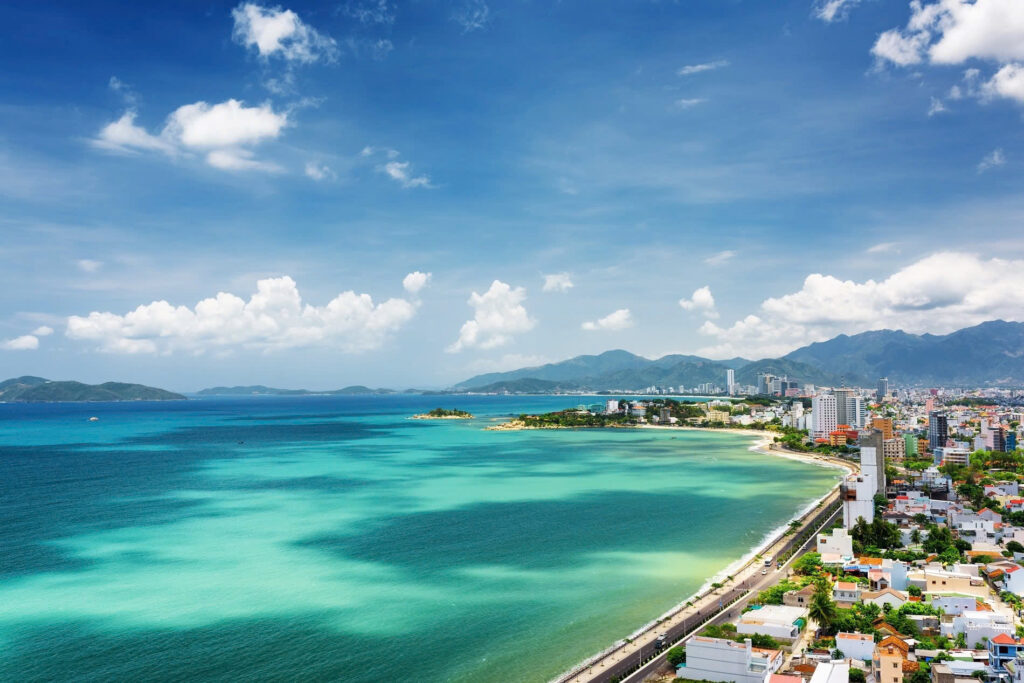
Nha Trang is a bustling coastal city known for its beautiful crescent-shaped beach, islands, and lively atmosphere.
- Pros:
- Stunning Beaches & Islands: Ideal for water sports, relaxation, and boat trips.
- Active Expat Scene: A long-established and large Russian and Western expat community.
- Plenty of Activities: Diving, snorkeling, mud baths, theme parks, golf courses.
- Good Healthcare: Several well-regarded hospitals and clinics.
- Developed Tourism Infrastructure: Abundance of restaurants, cafes, and entertainment options.
- Cons:
- Can feel very touristy and crowded.
- Traffic can be heavy.
- Summers are very hot and humid.
- Cost of Living Snapshot (Monthly Estimate for a Couple):
- Rent (1-2 bed apartment): $400 – $800
- Food: $300 – $600
- Utilities: $100 – $150
- Total Comfortable Living: $1,200 – $2,000+
RELATED: 20+ Best Things to Do in Nha Trang: Your A-Z guide
4. Vung Tau: The Convenient Coastal Escape
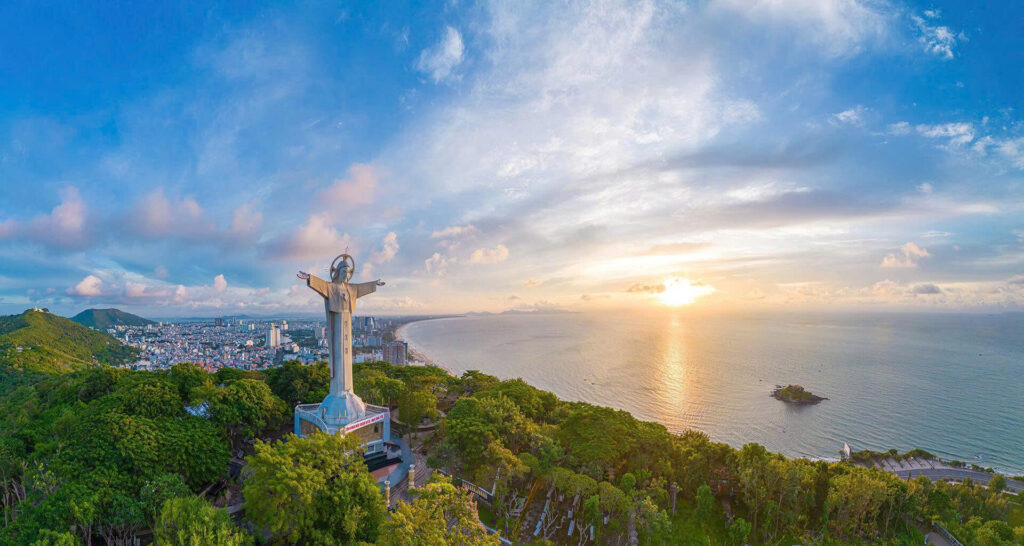
Located just a couple of hours’ drive from Ho Chi Minh City, Vung Tau offers a relaxed seaside town feel with easy access to a major metropolis.
- Pros:
- Proximity to HCMC: Ideal for those who want a quieter life but easy access to big city amenities and international flights.
- More Local Feel: Less touristy than Da Nang or Nha Trang, offering a more authentic Vietnamese experience.
- Affordable: Generally lower cost of living than the major tourist hubs.
- Decent Beaches: While not as pristine as Da Nang, still offer a good seaside environment.
- Growing Expat Community: It’s a common choice among expats in the oil and gas field.
- Cons:
- Beaches can be less clean than central Vietnam.
- Limited high-end healthcare facilities.
- Cost of Living Snapshot (Monthly Estimate for a Couple):
- Rent (1-2 bed apartment/house): $300 – $600
- Food: $250 – $500
- Utilities: $80 – $120
- Total Comfortable Living: $1,000 – $1,800+
5. Da Lat: The “City of Eternal Spring”

Nestled in the Central Highlands, Da Lat offers a refreshingly cool climate and French colonial charm, a stark contrast to Vietnam’s coastal cities.
- Pros:
- Mild Climate Year-Round: Known for its pleasant, temperate weather, making it appealing for those who dislike intense heat.
- Scenic Beauty: Pine forests, waterfalls, lakes, and flower gardens.
- Relaxed Pace: A quieter, more laid-back atmosphere.
- Unique Architecture: Distinctive French colonial villas and quirky attractions.
- Cons:
- No beaches.
- Healthcare facilities are more basic compared to major cities.
- Less diverse expat community.
- Can get chilly in winter.
- Cost of Living Snapshot (Monthly Estimate for a Couple):
- Rent (1-2 bed apartment/house): $300 – $600
- Food: $250 – $500
- Utilities: $80 – $120
- Total Comfortable Living: $1,000 – $1,800+
RELATED: 20+ Best Things to Do in Nha Trang: Your A-Z guide
Other Considerations:
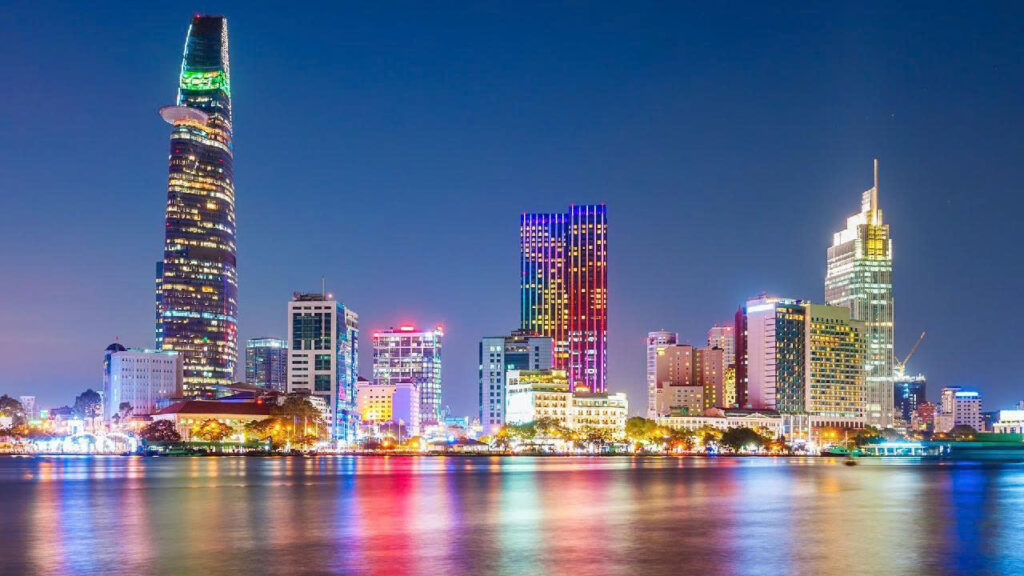
- Ho Chi Minh City & Hanoi: While vibrant and offering top-tier amenities, Ho Chi Minh City and Hanoi are generally more expensive, crowded, and polluted. They are better suited for retirees who thrive in a fast-paced, urban environment and value access to extensive international services and diverse entertainment. They boast the best international hospitals in Vietnam.
- Phu Quoc: This island paradise offers stunning beaches but is less developed for long-term expat living, with higher costs for some goods and services.
Navigating Visa & Residency for Retirees
Presently, there isn’t a specific visa category for retirees in Vietnam. Most foreign retirees rely on:
- Tourist Visas: Require frequent extensions or “visa runs.”
- Business Visas (DN Visa): Often obtained through a local company or sponsorship, allowing for longer stays.
- Investor Visas (DT Visa): For those willing to make a significant investment.
It’s crucial to consult with a reputable Vietnamese immigration lawyer or visa agency to understand the latest regulations and determine the best long-term solution for your individual circumstances. Staying compliant with Vietnamese law is essential.
RELATED: Best Time to Visit Vietnam 2025: Weather by Month & Travel Tips
Essential Tips for Retiring in Vietnam
- Learn Basic Vietnamese: While English is spoken in tourist areas, learning some basic Vietnamese phrases will greatly enhance your daily life and interactions with local people.
- Understand Cultural Nuances: Embrace the Vietnamese culture and traditions. A little understanding goes a long way.
- Budget Wisely: Even with a lower cost of living, track your expenses to ensure your retirement funds are sustainable.
- Connect with Expats: Join online groups and local gatherings to meet other foreigners living in Vietnam. They are invaluable sources of information and support.
- Health Insurance: Invest in comprehensive international health insurance that covers you in Vietnam.
- Banking: Open a local bank account for easier transactions, but maintain an international account for managing larger funds.
RELATED: Digital Nomad in Vietnam: Best Cities, Costs & Tips (2025 Guide)
Choosing the top retirement city in Vietnam is a journey of discovery. Whether you’re drawn to the coastal charm of Da Nang, the ancient allure of Hoi An, the vibrant energy of Nha Trang, the relaxed atmosphere of Vung Tau, or the cool serenity of Da Lat, Vietnam offers a unique and fulfilling retirement experience.
By carefully considering your priorities regarding cost, healthcare, lifestyle, and community, you can find your perfect slice of paradise and begin a truly unforgettable chapter of your life in this enchanting country.

